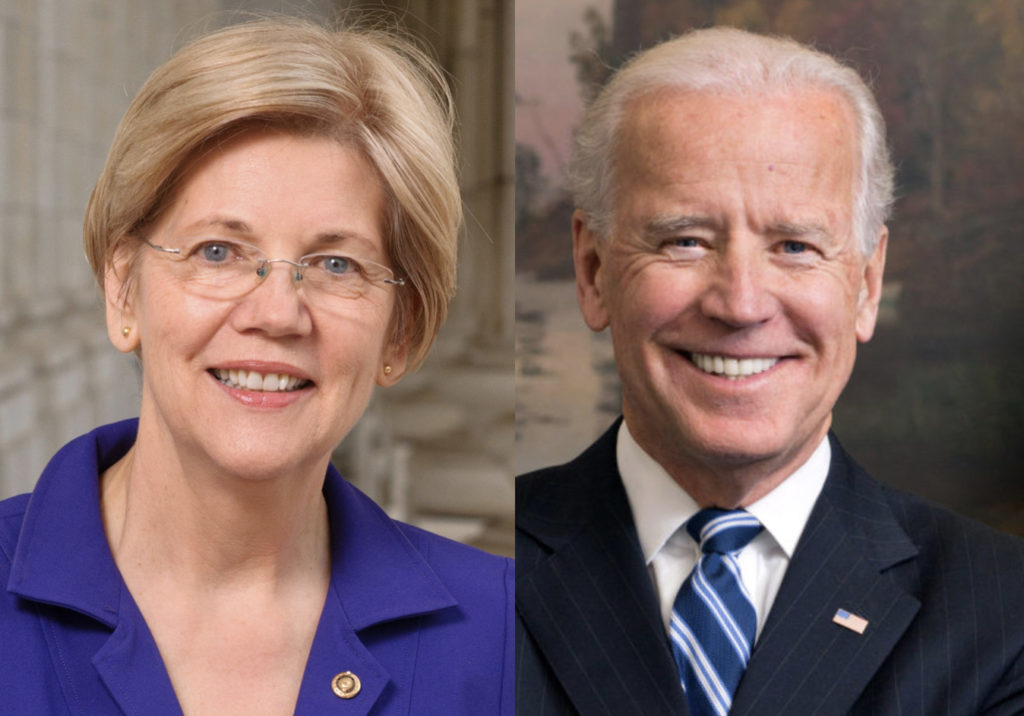All this noise about Joe Biden and Elizabeth Warren

Over the weekend, 2020 frontrunners Joe Biden and Elizabeth Warren got about as impolite with each other as the Democratic primary race is going to get when they got into a war of words over the feasibility of funding Medicare-for-all. Today we’ve seen the media spend a lot of time discussing how this is impacting the polls.
I’ll save you some time: it’s not impacting the polls. Any new poll results you’re seeing today were conducted at least partially before Biden and Warren started jawing at each other, so if there is a change coming, you’re not going to see it. Check back later in the week. There is something notable here, however: the national polls in the 2020 Democratic primary race aren’t changing – at all.
The current nationwide polling averages say that Joe Biden has about an eight point lead over Elizabeth Warren, who in turn has about a four point lead over Bernie Sanders, who in turn is about ten points ahead of Pete Buttigieg. Everyone else is in the low single digits. If you go back a month, you find that the nationwide polling averages were about the same. If you go back two months, still the same.
That’s not to say that the national polls won’t end up changing – but they haven’t been changing. This has, for now, become a stagnant race. New policy proposals aren’t moving the needle. The debates aren’t moving the needle. Fake scandals aren’t moving the needle. But wait, you say. The media keeps talking about “movement” in the polls. There are two reasons for that.
Cable news all too frequently likes to quote outlier polls that are saying the opposite of all the other polls, because it creates the appearance of movement, which its good for ratings. If they just admit that nothing is changing, that’s boring, and people go watch football instead. Cable news is also making a big deal out of any movement it can find in state level polls, which kind of matters, but kind of doesn’t.
No one is disputing the role that Iowa and New Hampshire play as proving grounds for presidential candidates, who have to pound the pavement there and show they’re serious about connecting with voters on a personal level. But the reality is that the early contests tell us more about how each candidate fares with that state’s specific voting demographics than anything else.
Iowa and New Hampshire tell us how a Democratic candidate is going to fare with liberal and moderate white voters. Nevada gives us the first taste of how candidates will fare with racial diversity. South Carolina tells us how a Democratic candidate is going to fare with black voters. If the polls end up remaining where they are now (which is a huge if), then Warren will win Iowa and New Hampshire by a small margin, Biden will win Nevada by a small margin, Biden will win South Carolina in a blowout, and then we’ll head into Super Tuesday as if the first four states hadn’t happened.
In 2016, Bernie Sanders came within a few votes of winning Iowa, and he won New Hampshire handily, but once the race reached more diverse demographics, he ended up losing the primary to Hillary Clinton by four million votes. In fact it’s been several decades since the Democratic and Republican nominees both won Iowa and New Hampshire. It’s why, even as everyone else focuses on early state polls in a primary race, I keep my eye on the national polls instead. By mathematical definition, if you’re not doing well nationally, you’re not going to win enough states to win the nomination.
